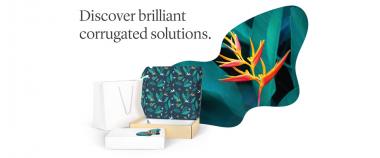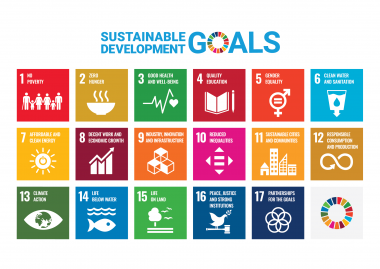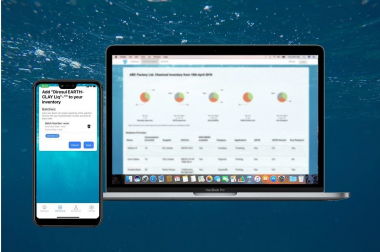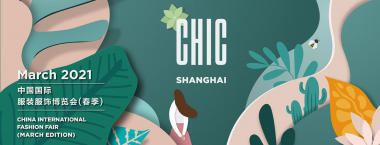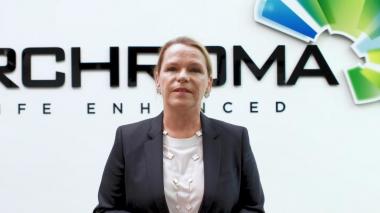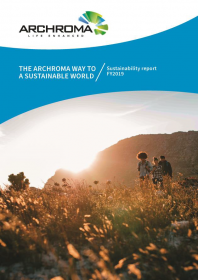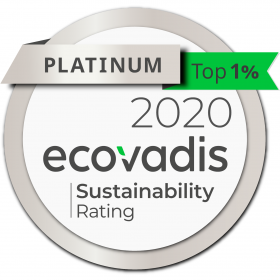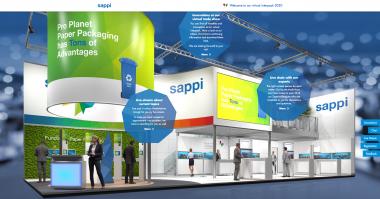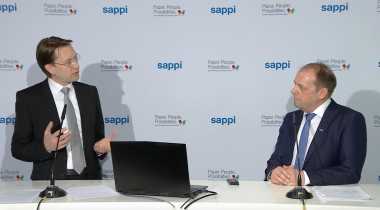Uncoated, ultra-bright virgin fibre liner with exceptional feel and colour reproduction
Sappi is expanding its product range for corrugated board applications with Fusion Nature Plus.
With Fusion Nature Plus, Sappi is launching an uncoated, fully bleached and completely recyclable virgin fibre liner. The company provides a unique variety of packaging and speciality papers. The specialist in paper-based solutions also offers a wide range of products in relation to labels. Fusion Nature Plus offers excellent printing results in flexographic, digital and offset printing processes.
- Ultra-bright, uncoated virgin fibre paper with excellent printing results
- Ideal for attractive corrugated board as well as premium shopping bags
- Can be used as topliner, liner or fluting
- Available in grammages of 80 to 130 g/m²
The virgin fibre liner is based on the concept of the successful Fusion Topliner. In contrast to the double-coated Fusion Topliner, Fusion Nature Plus has a natural, uncoated surface with a more tactile feel, in response to the growing market appetite for this type of product. The liner is also provided in very low grammages.
Fusion Nature Plus enhances brand appearance
Brand owners, corrugated board processors, manufacturers of display cartons and folding cartons as well as designers all benefit from the versatility of the new Fusion Nature Plus. In contrast to conventional uncoated liner papers, the material offers high brightness, brilliant colour reproduction and consistently high quality. These features make the product the perfect choice for corrugated board or solid board packaging, where a very bright appearance is needed for topliners, inner liners and corrugating applications. Whether used as an inlay in cosmetics or confectionery packaging, or as a liner in shipping packaging to ensure an exceptional unboxing experience, Fusion Nature Plus is called upon wherever an enhanced appearance is desired.
Another area of application is paper carrier bags, where uncoated paper qualities are often preferred.
Fusion Nature Plus is ideally suited to a range of printing processes: the product achieves outstanding results in flexographic and offset printing. The pre-treated surface and high brightness offer clear advantages with regard to primer requirements and print behaviour, especially for inkjet-based digital printing. Bernd Gelder, Head of Sales Containerboard at Sappi Europe: ‘With its exceptional print quality and impressive colour reproduction, Fusion Nature Plus particularly appeals to packaging customers who value a natural look and feel in paper. The response from the market, in which packaging based on corrugated board still needs to take on a bigger role, is enormous, of course, with the result that we have succeeded in completing a number of interesting end applications and customer projects with Fusion Nature Plus shortly after market launch.’
Virgin fibre vital for recycling
In continuous recycling use, fiber that has already been recycled is subject to a progressive weakening of quality, resulting in a weakness in the products that incorporate them, but also, crucially, over time they will ultimately degrade to a point where they become unrecoverable. As a result, a certain amount of virgin fibre needs to be introduced into the cycle on a regular basis. Without continuous virgin fibre contribution to the pulp cycle, recycled producers will in the end run out of raw material. The premium virgin fibre liner Fusion Nature Plus from Sappi plays an important role here in maintaining the quality of the recycling substrate.
Thanks to the central location of Sappi’s production site in Ehingen, Fusion Nature Plus can be supplied quickly throughout Europe. The shorter transportation distances reduce transport related fossil emissions and protect the environment. The shorter production cycles in turn ensure high availability and rapid supply.
Fusion Nature Plus is currently available in six grammages from 80 to 130 g/m² in both sheet and roll form. Sappi can also provide Fusion Nature Plus with FSC or PEFC certificates on request.
Sappi Europe


